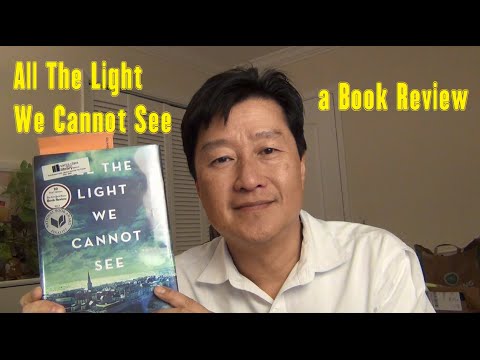A French blind girl without her loving dad and an electronic wizard orphan boy without his supportive sister came together from two different background and met in one place in Saint Malo, France in the middle of World War II. For just a brief day, they met and shared a can of peaches, then they went their separate way never to see each other again. Until the last few chapter, two separate stories are being told of each character. Somehow, the readers know they will meet someday but I didn’t know it would take this long.
It’s a really long book and difficult to read in the beginning because of mix of French and German languages and the story took place so long ago during 1940’s. It takes a little while to get into the story but it’s all worthy it at the end.
Switching between the two stories of Werner and Marie-loure is an excellent technique to keep the readers interested like having two cameras back and forth between the two central characters.
The World War II did a lot of damage to the people of France and Germany, especially those of disadvantaged: the blind and orphans. People are crude to one another fighting for survival, when the best and the worst of human drama happened.
The Sea of Flame diamond and the myths surrounding it make the story rather interesting. And there are the supporting characters:
– the locksmith with skill in woodworking, turning an entire neighborhood into a a small model to get her blind daughter familiarized with neighborhood
– the great uncle, Etienne, with a phobia of public places but a renowned science broadcaster, turned out to be the link between the blind girl and the boy – who listened to his broadcast in Germany as a child.
– a friend, Frederic, with a passion for birds, turned into a brain-damaged boy because of the hatred and bullying of the military school classmates.
– At the end, the two girls of significance to the boy met long after the end of the war, when the boy (Werner) was declared dead, though I kept hoping that he would turn out alive. That would be truly good ending.
– Like a good novel, there were lots ironies. The most unfortunate ones and least likely to survive in a war turn out alive like the blind girl, Marie-Loure, Jutta, and Frederic.
The book is beautifully written and words so well crafted that it’s no surprise it won the Pulitzer price. Highly recommended if you have some curiosity in the war-torn France and believe, just so slightly, if the myths are being tested.

